For fifty years, the Union of Concerned Scientists, along with our many supporters, allies, and partners, has worked to develop practical solutions to some of the world’s most pressing problems. Together, our advocacy and actions have resulted in an impressive record of success. As with science, curiosity and passion drive us forward. We are proud of our impact so far, but, with much work yet to do, we know our most important accomplishments lie ahead.

Built a Regional Program to Drive Down Transportation Emissions
Nine Northeast and Mid-Atlantic states and Washington, DC committed to developing a regional policy that will reduce transportation emissions and fund a cleaner, modernized transportation system that serves everyone. UCS provided technical analysis for the states, mobilized supporters and experts, and helped build a coalition of environmental justice, business, and labor partners to support this effort.

Pushed California toward 100 Percent Clean Energy
After many years of UCS providing visionary technical expertise to prove it was possible, California passed a bill requiring that 100 percent of its electricity come from clean, renewable sources by 2045. With this groundbreaking win, the state—the fifth-largest economy globally—has set an inspiring precedent for the nation and the world.
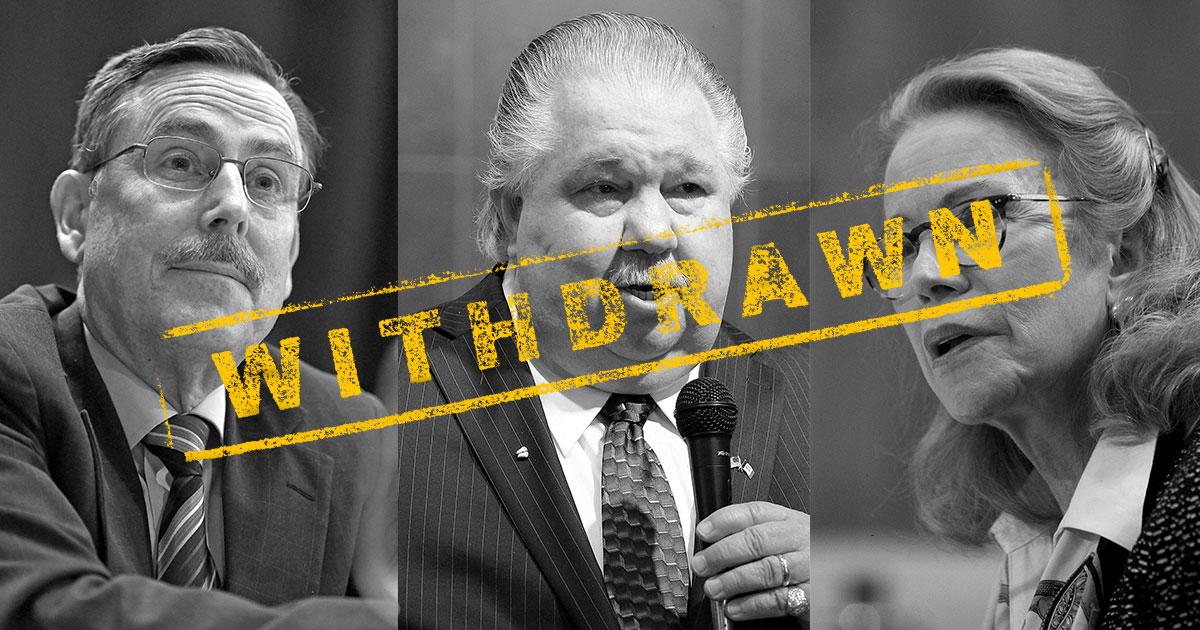
Blocked Anti-Science Nominees from the Trump Administration
UCS mobilized our half-million members and supporters to successfully block unqualified or unacceptable nominees for key positions in the Trump administration.
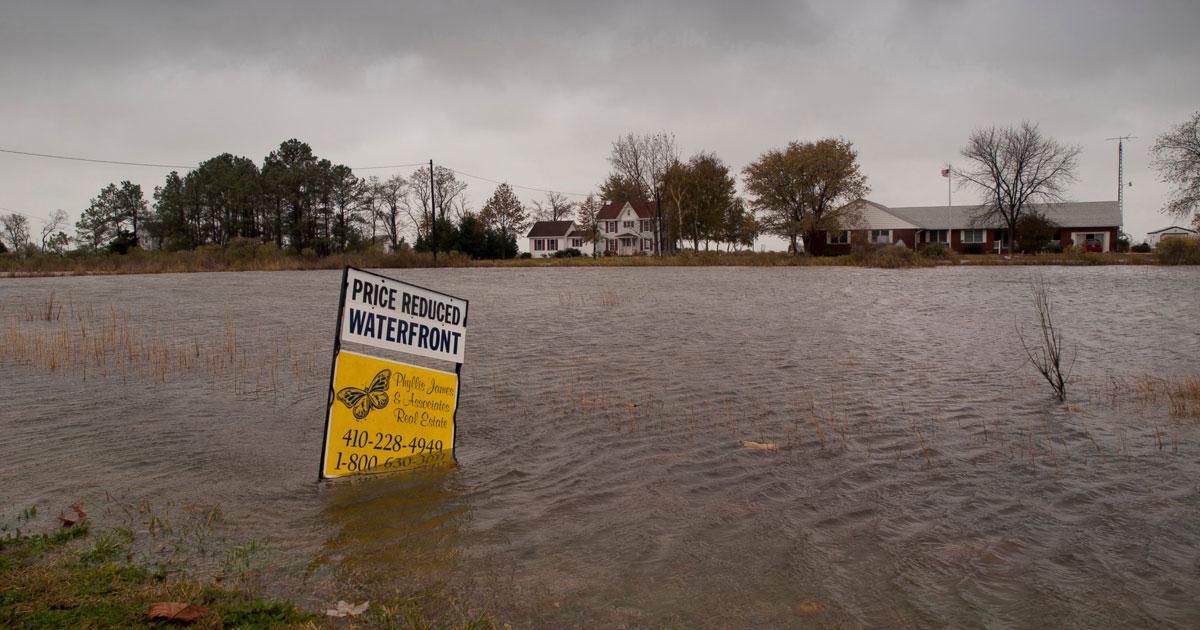
Showcased the Threat to Coastal Properties from Climate-Driven Sea Level Rise
Using the latest available real estate data, a UCS analysis sent a wake-up call throughout the real estate and insurance markets by showing that more than 300,000 coastal homes in the United States—with a collective market value of more than $117 billion—are at risk of chronic flooding by 2045, within the life of a 30 year mortgage.

Provided Crucial, Independent Analysis of the North Korean Missile Program
When tensions escalated as North Korea built and tested long-range nuclear missiles, UCS offered trusted, independent analysis of North Korean capabilities, and urged a diplomatic solution to the dangerous nuclear standoff.

Forced ExxonMobil to Acknowledge Climate Change in its Business Plans
After sustained pressure from UCS, ExxonMobil shareholders defied management by voting to require the world's largest oil and gas company to report on the impacts of climate change to its business—marking a milestone in a multi-year effort by UCS and activist investors.

Expanded Clean Energy in the Midwest
UCS worked in Illinois to successfully pass a comprehensive bill that boosts investments in clean energy and energy efficiency, expands access to low-income households, and pledges 35 percent clean energy by 2025. We're spearheading many similar initiatives to expand clean energy in the Midwest and other regions of the United States.

Secured Fuel Efficiency Standards for Big Trucks
Heavy-duty vehicles comprise just 7 percent of the vehicles on the road, but they consume 25 percent of the fuel. UCS analysis informed the development of heavy-duty fuel economy standards, ensuring that new trucks will use 37 percent less fuel over the next decade, reducing oil use by 2 billion barrels and eliminating 1.1 billion tons of global warming emissions over the life of these vehicles.

Revealed Climate Deception at ExxonMobil
A UCS report documented that ExxonMobil and other oil and gas companies knew about the dangers their products caused to the climate since at least 1981, and yet actively worked to decieve the public about climate science. We're leading the effort to scientifically quantify the damages caused by the emissions from these companies' products, and to hold major oil and gas companies accountable.
UCS reevaluates our investment portfolio, uncovers small fossil fuel holdings within “sustainabililty funds,” and fully divests from fossil fuel interests.

Convinced Major Corporations to Go Deforestation-Free
Identifying palm oil as a major driver of tropical deforestation, UCS targeted major corporate consumers, and convinced 12 leading global companies—including Colgate-Palmolive, Hershey, Pepsi, and Proctor & Gamble—to use only deforestation-free and peat-free palm oil in their products.

Spotlighted How Restructuring US Food Policy Could Save Trillions
A UCS video and analysis, The $11 Trillion Reward, demonstrated the health and environmental benefits of restructuring our food system. The US government's current misguided agricultural policies force taxpayers to pay twice: once by giving huge subsidies to the production of junk food and a second time to cover the treatment of diseases caused by the overconsumption of these foods.

Won Protection for Scientific Whistleblowers
After years of effort, UCS won a landmark victory in Congress with the unanimous passage of a bill that explicitly grants whistleblower protection to scientists and others who expose the distortion or suppression of federal scientific data—an essential safeguard for protecting human health and exposing corruption by special interests.
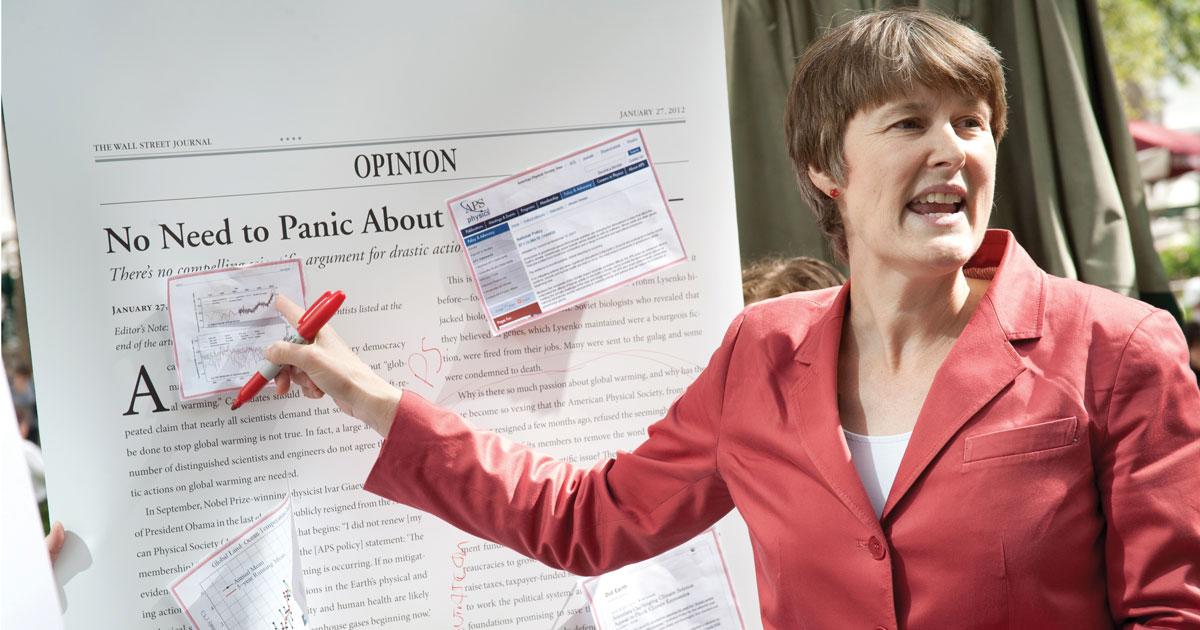
Exposed Misinformation and Media Bias
A UCS analysis exposed extremely misleading climate coverage, showing that the Fox News Channel and the Wall Street Journal's opinion page misrepresented climate science more than 80 percent of the time—just one example of our ongoing efforts to call out misinformation by corporations, government officials, and the media.
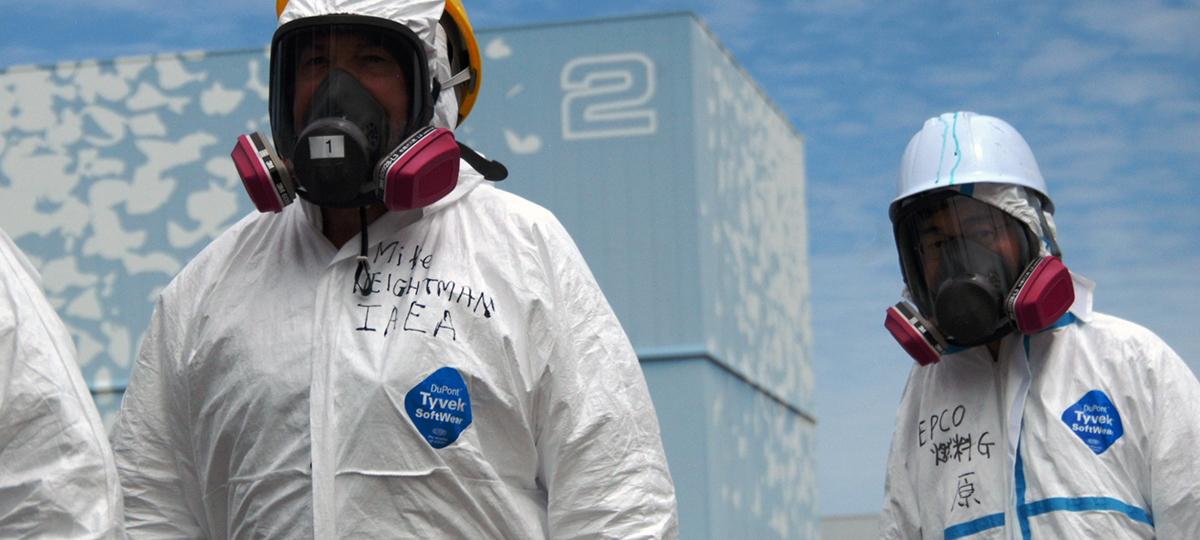
Provided Critical, Independent Expertise on the Fukushima Nuclear Disaster
UCS nuclear power experts were in high demand by the international media during the Fukushima nuclear power plant disaster. To help people in Japan and around the world understand the unfolding threat and its implications, UCS held daily press briefings throughout the crisis with as many as 125 reporters each day, and issued a report highlighting the steps the US government should take to increase safety and resilience at American nuclear plants.
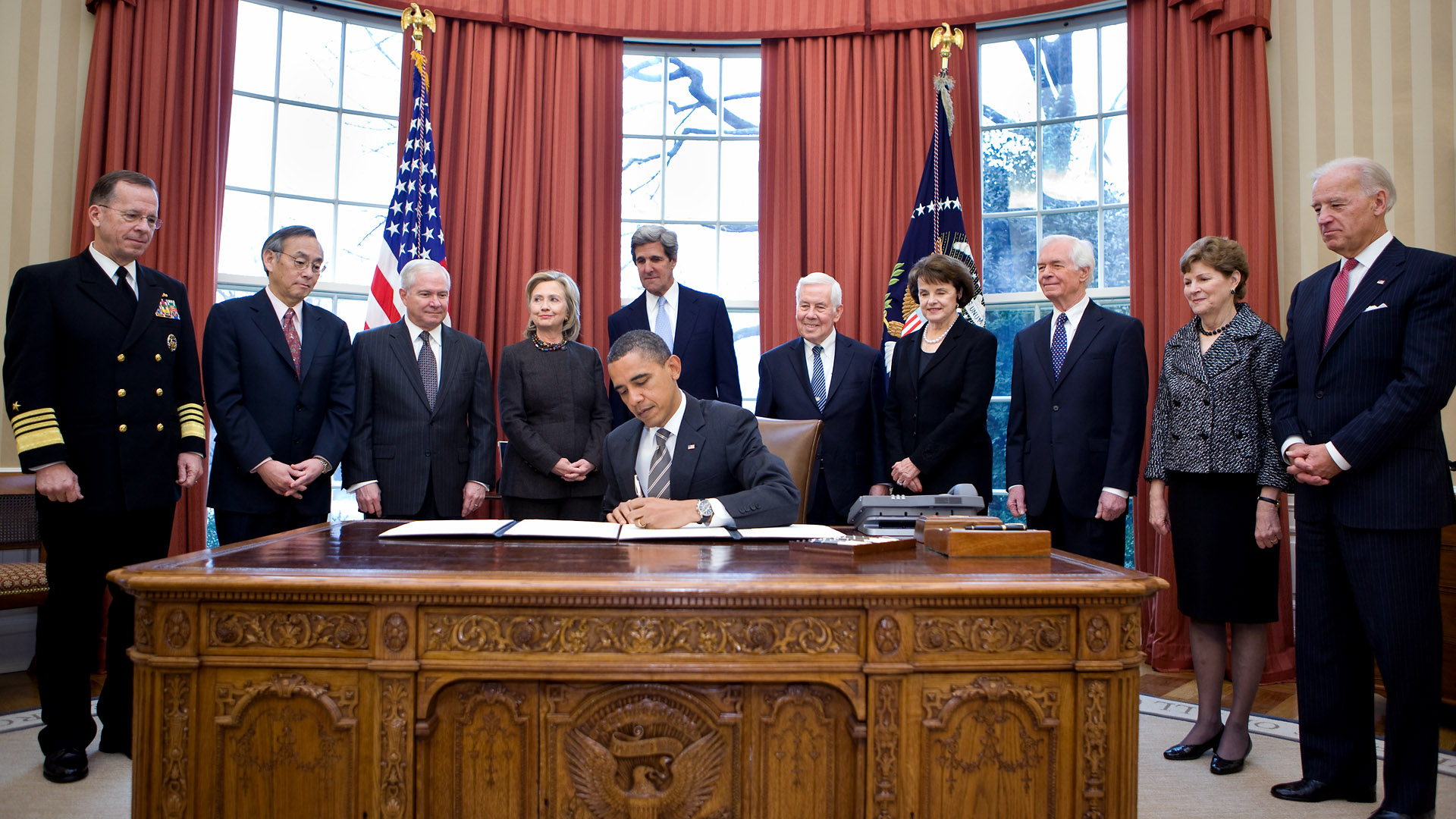
Helped Reduce Nuclear Stockpiles in the United States & Russia
UCS technical expertise informed the US Senate decision to approve the New Strategic Arms Reduction Treaty (New START) to reduce US and Russian nuclear weapons stockpiles. The treaty reduced the enormous nuclear arsenals that both countries had amassed over the course of the Cold War.
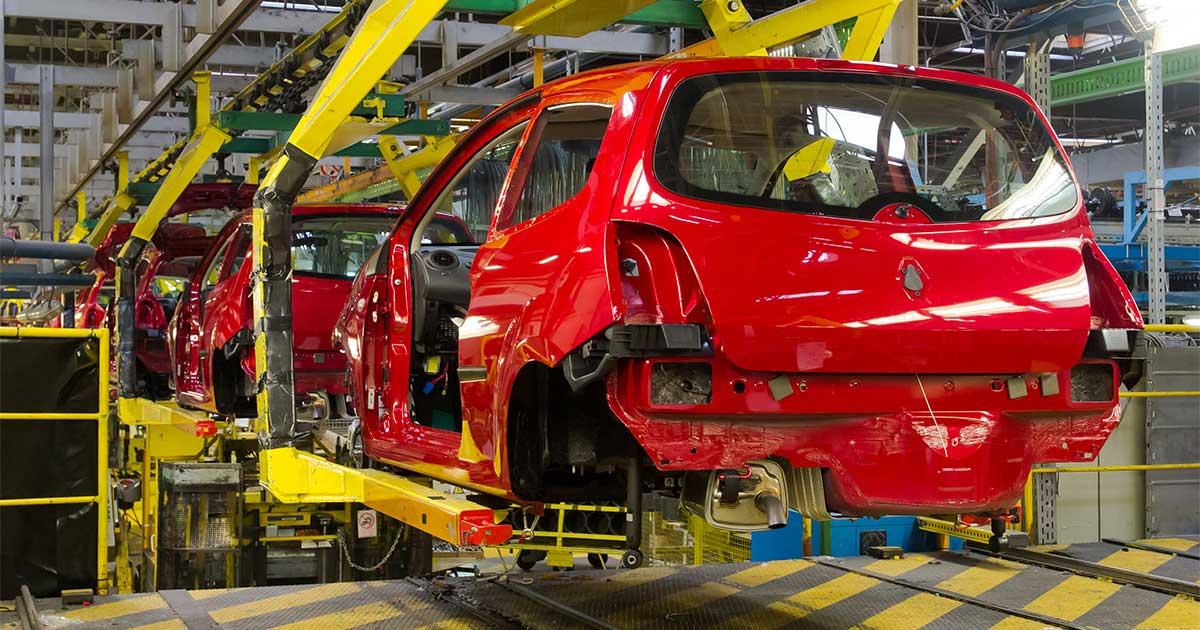
Dramatically Cut Emissions from Cars and Trucks
After years of analysis and public engagement around the need to reduce emissions from transportation, we helped pass federal emissions and fuel efficiency standards—a signature UCS achievement. The current standards are designed to halve the global warming emissions of new cars and light trucks by 2025, a prospect equivalent to taking some 40 million cars and trucks off the road. When threatened by the Trump administration we mobilized our members and supporters to fight hard to preserve them.

Halved Global Warming Emissions in the Northeast
Climate experts relied upon UCS analysis to craft the Regional Greenhouse Gas Initiative (RGGI)—the nation's first multi-state effort to combat global warming. Since then, the nine participating states have cut global warming emissions in the Northeast by 50 percent.

Won International Protections to Preserve the World's Rainforests
The result of years of analysis and advocacy, UCS played a key role in winning international protections through a UN agreement for the world's rainforests that will keep at least 300 million tons of global warming emissions from the atmosphere each year—an outcome equivalent to shutting down more than 60 dirty, coal-fired plants.
UCS opens its Midwest office in Chicago.
UCS creates a dedicated team to work on scientific integrity in government, now called the Center For Science And Democracy.
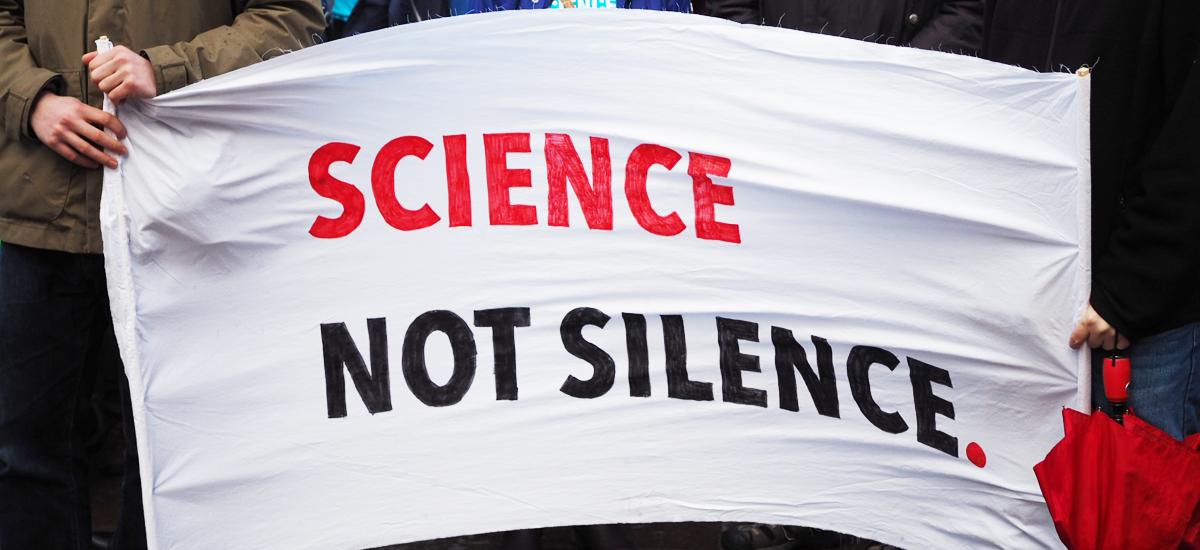
Organized 17,000 Scientists to Oppose Bush Administration's Abuse of Science
After the George W. Bush administration undertook a systematic effort to undermine science in the federal government, UCS fought back and drew widespread visibility to the issue. More than 17,000 scientists across the country signed a statement defending the importance of scientific integrity in government decisionmaking. Today, the UCS Science Network includes more than 25,000 scientists, engineers, and other experts across the country who are on call to respond to attacks on science.

Sounded an Alarm on the Reckless Overuse of Antibiotics on Farms
A UCS report estimated that animal agriculture was using eight times more antibiotics than were being used to treat humans—often to prevent disease in overcrowded feedlots, rather than to treat sick animals. The massive overuse posed a serious threat to these drugs' effectiveness in human medicine. After years of pressure from UCS and allies, the US Food and Drug Administration finally restricted the use of antibiotics in animal feed in 2013.

Demonstrated the Vulnerability of US Missile Defense Plans
When the Clinton administration planned to deploy a costly missile defense system, UCS released a report documenting how it could be overpowered by relatively simple and low-cost countermeasures. UCS advocacy and the publicity it generated helped stop the deployment.
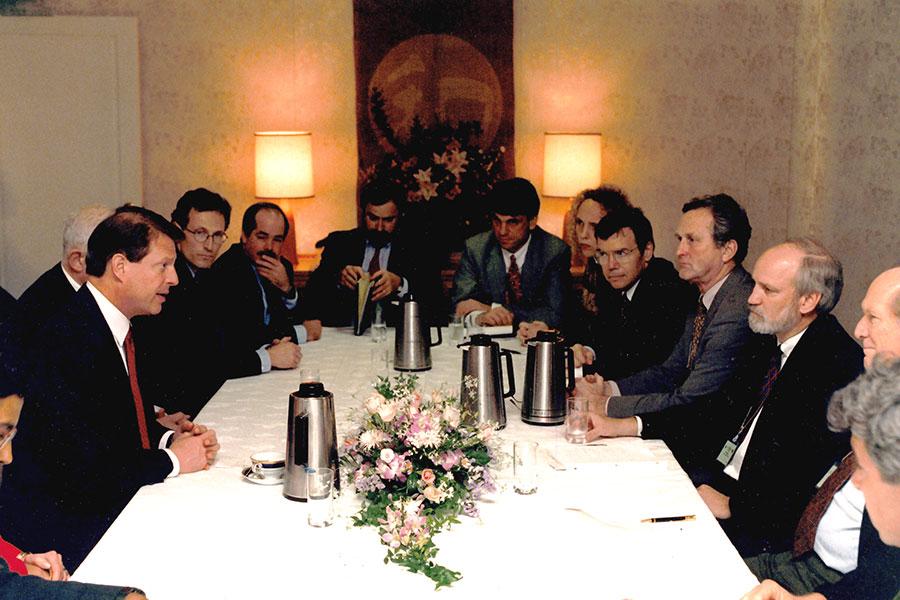
Led the Way on International Climate Agreements
UCS led a delegation of US nonprofit organizations to the international climate negotiations that resulted in the landmark Kyoto Protocol climate change treaty, organizing daily briefings and meetings with negotiators and the media (pictured above, the UCS delegation with then Vice President Al Gore). More recently, we reprised this role with the Paris Climate Agreement in 2015, which committed most of the world's nations to significant reductions in global warming emissions.
Leveraging “new” email technology, UCS launches the UCS Science Network, a group of engaged scientists now 25,000 strong.
UCS begins work on food and agriculture issues.

Pioneered Breakthrough Approach to Renewable Energy
Long before most people thought it was possible to replace fossil fuel–generated power with clean wind and solar, UCS released Powering the Midwest, a report outlining how states could take advantage of energy deregulation to insist that their power be sourced from renewables. In the following years, UCS would rely on this foundational work to advance a clean energy future at both the federal and local level, creating jobs, and generating billions of dollars in public health benefits from cutting emissions from dirty power plants.
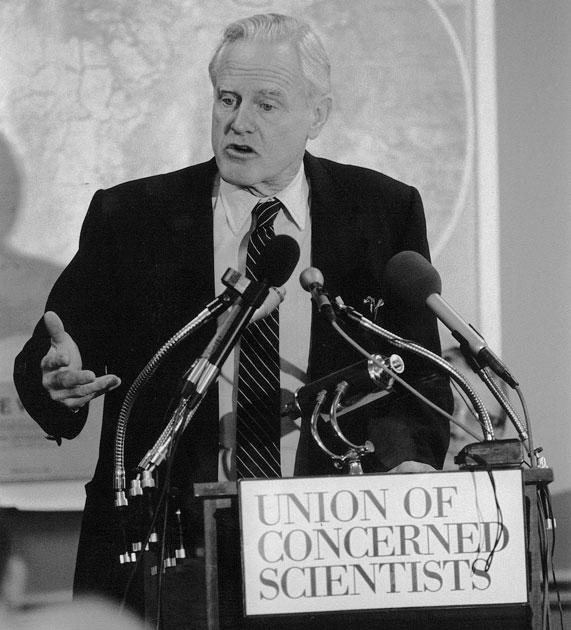
Issued “World Scientists' Warning To Humanity”
UCS alerted the public to the threat of climate change and the need for sustainability. In a statement endorsed by 700 members of the National Academy of Sciences and a majority of the world’s living Nobel laureates, UCS called on all nations to work on solutions to climate change and resource loss to forestall their worst effects.
UCS opens its West Coast office in California.

Called for Increased Fuel Efficiency and Exploration into Alternative Fuels
UCS expanded into transportation issues by releasing Steering a New Course, a landmark report demonstrating that increased fuel efficiency and alternative fuels could be used to alleviate the the pollution and energy related impacts of the nation's heavy reliance on automobiles and fossil fuels. Four years later, UCS research and advocacy in transportation helped uphold California's Zero-Emissions Vehicle program, setting the foundation for future clean vehicle standards at the federal level.
UCS expands with a dedicated team to work on climate change.
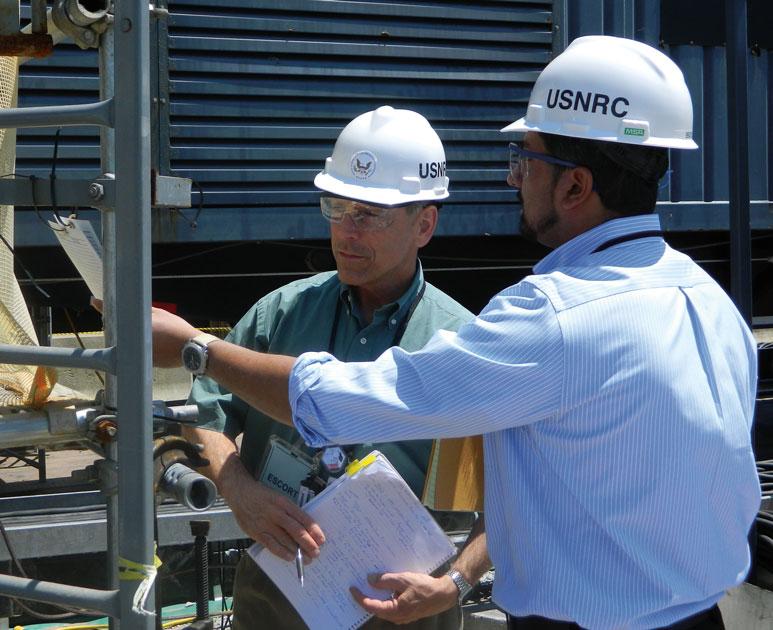
Protected Nuclear Plant Workers and the Public
UCS successfully sued the Nuclear Regulatory Commission, resulting in strengthened safety standards at nuclear power plants across the country.
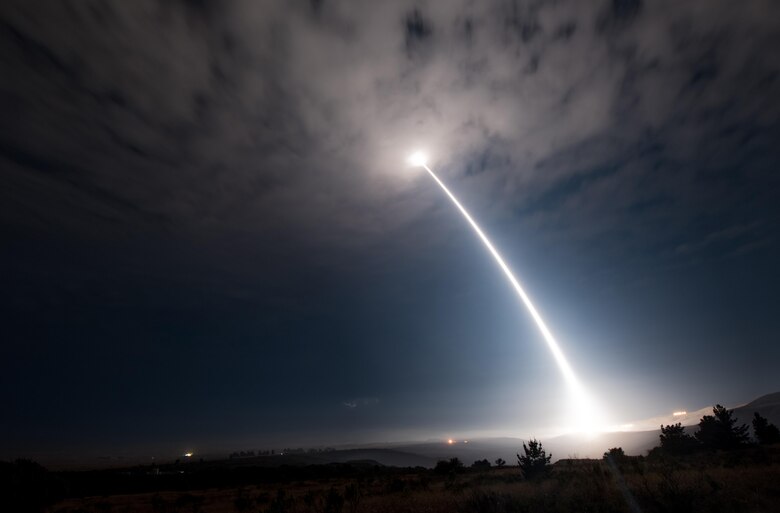
Led Scientists in Protest Against Space Weapons
More than 700 members of the National Academy of Sciences, including 57 Nobel laureates, signed the UCS Appeal to Ban Space Weapons, urging the United States and Soviet Union to ban testing and deployment of weapons in space. During this period, UCS research and public education efforts alerted the public to the false promises of the Reagan administration's “Star Wars” Strategic Defense Initiative and ultimately forced the government to scale back the program.
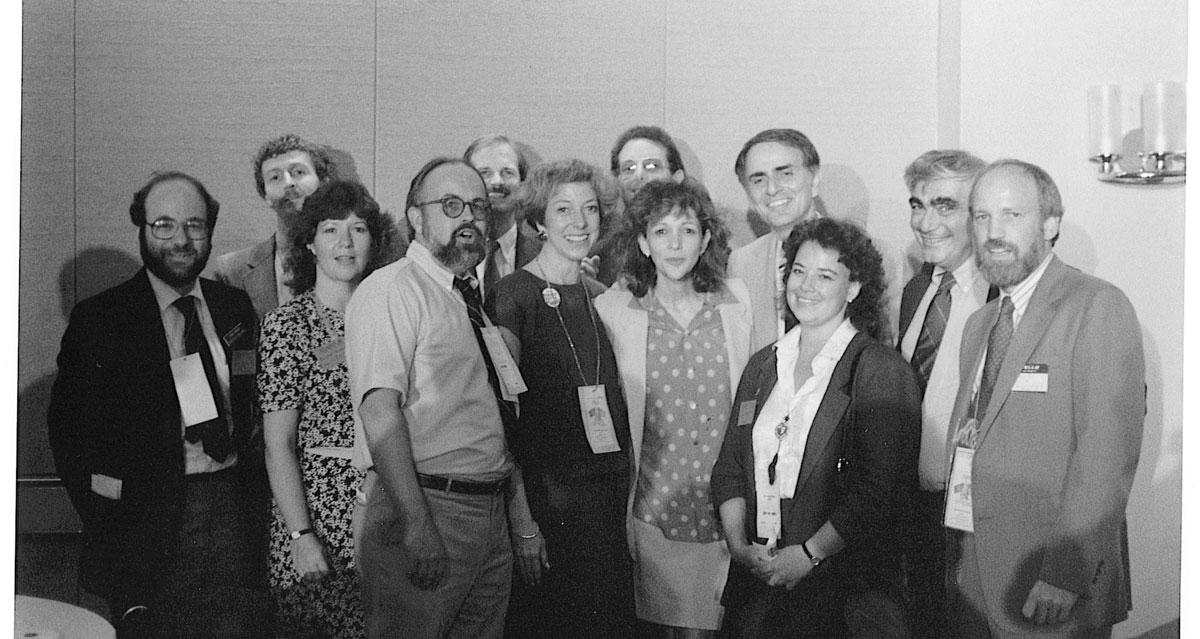
Convened Top Scientists to Provide Facts on US Missile Defense
Many of the nation's top scientists, including Carl Sagan (pictured above), joined UCS to participate in the first-ever scientist-led teleconference. Scientists from coast to coast were linked via satellite to the studios of WGBH-Boston for a two-hour UCS program addressing the dangers posed by missiles in space.
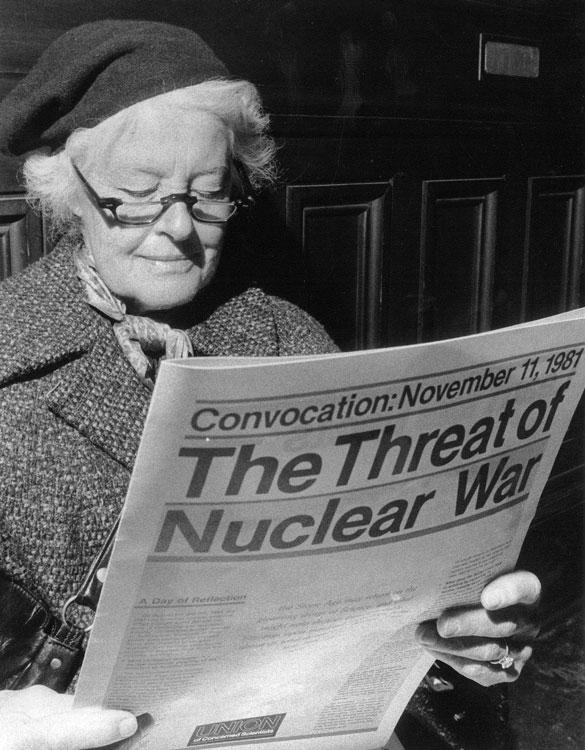
Rallied 100,000 Students for Teach-Ins on Nuclear War Threats
UCS sponsored teach-ins at 150 campuses in 42 states, drawing 100,000 people to participate in educational programs about the threat posed by the nuclear arms race.
UCS launches work on renewable energy with publication of Energy Strategies: Toward A Solar Future.
UCS opens an office In Washington, DC.
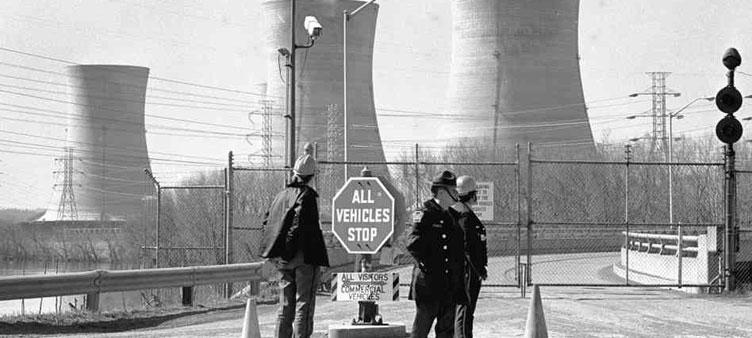
Offered a Prescient Warning of Danger at Three Mile Island Nuclear Plant
Two months before the 1979 Three Mile Island nuclear power plant accident, UCS called upon the US government to shut down the facility, along with 15 other nuclear reactors. Our analysis had shown that the Nuclear Regulatory Commission had dramatically understated the probability of an accident. Afterwards, UCS provided independent technical expertise at national hearings that helped educate the public and strengthen nuclear power safety.
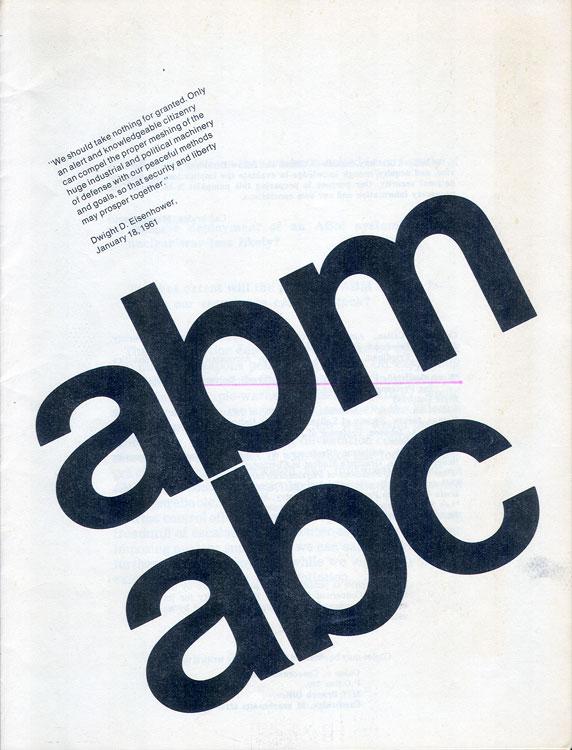
Reduced the Threat of the Nuclear Arms Race
From its very first report in 1969 (pictured here), UCS worked to expose the drawbacks of the Nixon administration's plans for an anti-ballistic missile (ABM) system. The work helped build public support for the 1972 US-Soviet ABM Treaty—an important milestone in nuclear arms control.
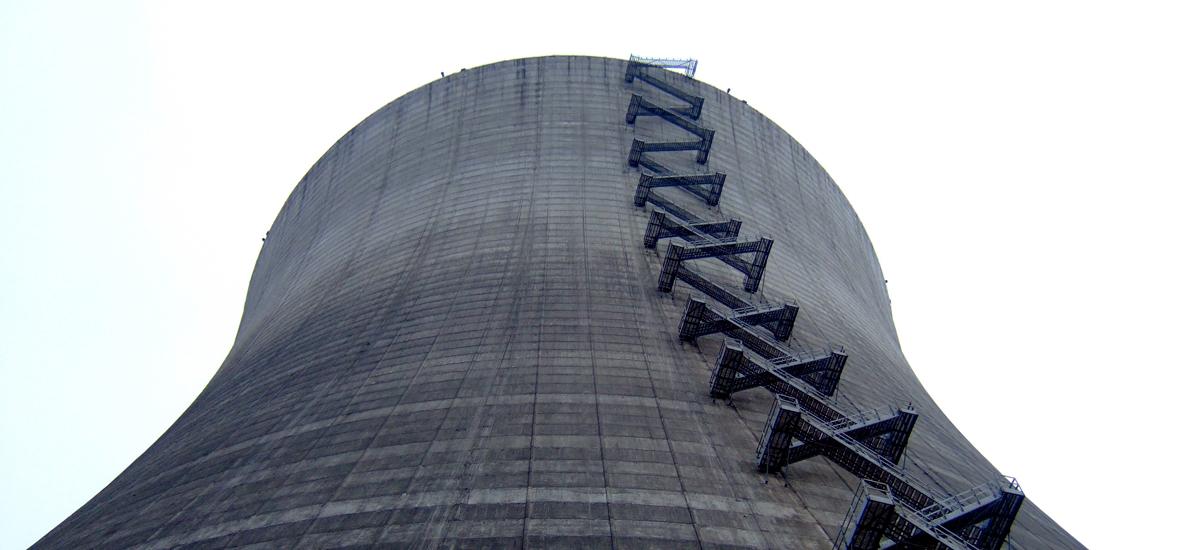
Alerted Public to Defects of Nuclear Power Cooling Systems
After failed government tests of emergency core-cooling systems, UCS provides unprecedented independent technical expertise at national hearings that spark widespread public concern over nuclear power safety.
UCS begins work on nuclear power safety.
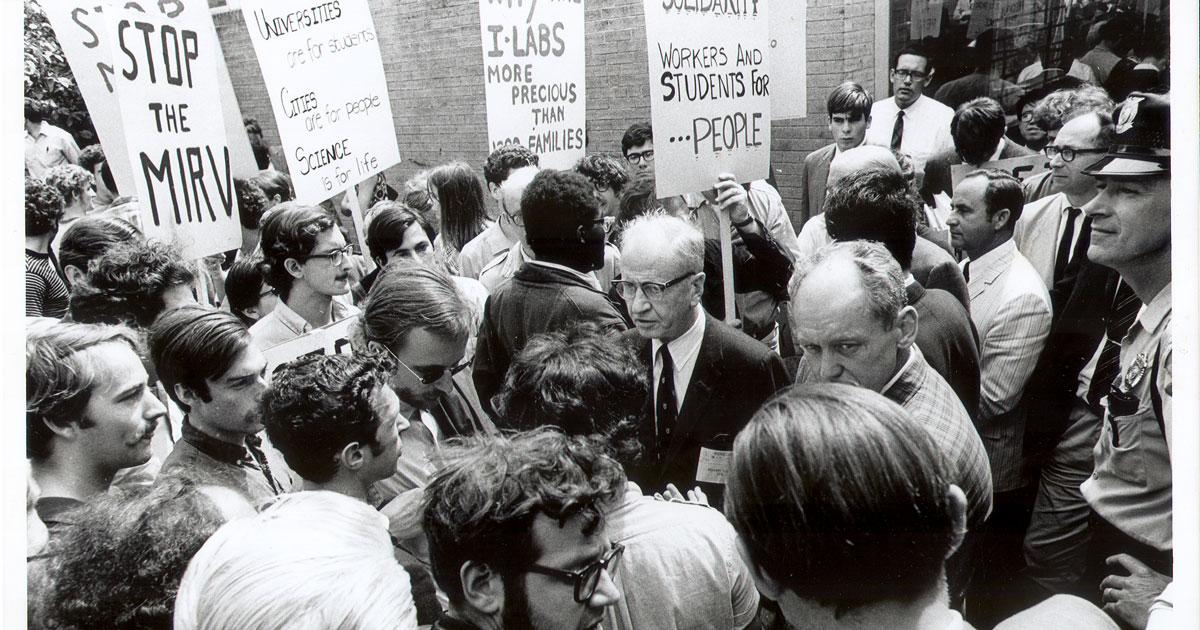
Organized a Groundbreaking Mobilization of Scientists
On March 4, 1969, during the height of the Vietnam War, students and faculty at the Massachusetts Institute of Technology organized a day of action to protest the US government’s misuse of science. Students organized a walkouts at MIT and across the country. Faculty issued a statement calling for scientific research to be directed toward solving environmental and social problems—instead of developing new and deadlier military weaponry. This call for scientists to serve the public good was the foundation of the Union of Concerned Scientists.